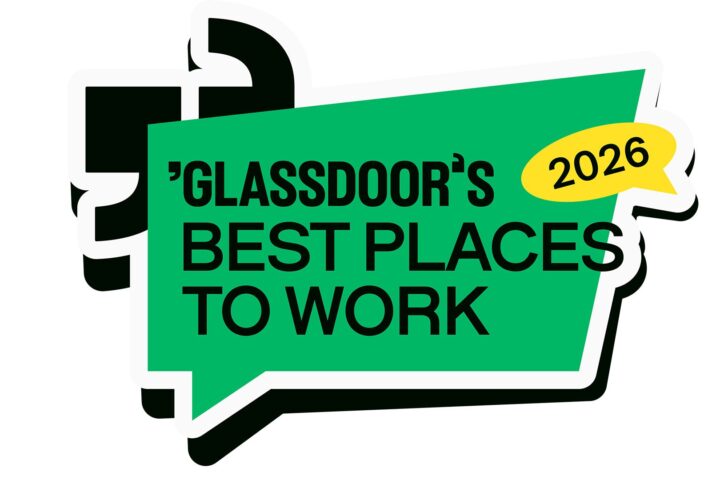Nearly half (45%) of UK workers have experienced unfair treatment, with younger employees, ethnic minorities, and women being disproportionately affected.
A survey of 4,000 UK adults, commissioned by HR software provider Ciphr, found that more than two in five felt they had faced unfair discrimination either while at work or when job hunting.
Of those, 38% said they had been discriminated against at work, while 39% believed they had been turned down for a job they were qualified for due to discrimination during the recruitment process.
More than three-quarters (76%) of survey respondents from Black, Black British, Caribbean, or African ethnic groups, and two-thirds (65%) of those from Asian or Asian British ethnic groups, reported experiencing discrimination at work or during hiring processes.
Gen Z and younger Millennials were also found to be significantly more likely than their older counterparts to perceive and call out workplace discrimination, as well as other types of bias or unequal treatment that may have become normalised over time.
Two in three (65%) of those aged 18 to 34 said they had experienced discriminatory attitudes and behaviours at work or as job applicants, compared to 45% of those aged 35 to 54, and 31% of those over 55.
Nearly one in five (19%) adults reported experiencing ageism at some point in their careers, whether in their current workplace, a previous workplace, or during recruitment.
Among those who reported experiencing age discrimination, nearly one in six (17%) men and one in seven (14%) women believed they had been treated unfavourably by recruiters due to their age.
The next most common types of workplace discrimination reported were appearance discrimination, cited by one in eight (13%) respondents, and gender discrimination, reported by 12%.
One in ten (10%) surveyed women, compared to around one in 20 (5.2%) surveyed men, felt they had lost out on job opportunities due to their sex or gender.
The rate was higher for non-binary people, with over one in four (27%) affected by gender bias when job hunting.
Around one in nine (11%) respondents reported experiencing discrimination due to being a parent or carer, with the rate tripling for so-called ‘sandwich carers’ – those responsible for both dependent children and older or disabled relatives – where 30% reported facing discrimination due to their family responsibilities.
The fifth most common form of workplace discrimination reported, cited by one in 11 (9.3%) UK adults, was race or ethnicity discrimination.
Among people from ethnic minorities (excluding white minorities), race or ethnicity discrimination was the most commonly experienced form of workplace bias, with 34% reporting it.
Nearly two-fifths (39%) of Black, Black British, Caribbean, or African respondents, and nearly a third (31%) of Asian or Asian British respondents, reported experiencing negative racism or discrimination based on their ethnicity in their careers, compared to 5.2% of white respondents.
Other types of workplace discrimination reported by around one in 13 people included accent discrimination (8.8%) and disability discrimination (8.2%).
Further findings showed that one in 20 (5.3%) respondents reported experiencing non-parent discrimination at work, while one in 17 (6.1%) had faced discrimination based on religion or belief.
Discrimination related to sexual orientation was reported by 5.8%, and criminal record discrimination during recruitment was cited by 2.8%.
The research also highlighted that certain industries have higher rates of workplace discrimination.
Two-thirds (2,630) of the survey respondents were employed or self-employed, and analysis of their experiences revealed that some industries are more affected by discrimination than others.
Workers in hospitality and event management were the most likely to report discrimination, with 75% of surveyed workers in these roles having experienced it at work or during hiring.
High levels of reported discrimination were also found in business, consulting, and management (66%), the media (62%), and creative arts and design (61%).
More than half (53%) of recruiters and HR professionals – who are often seen as key figures in implementing diversity, equity, inclusion, and belonging (DEIB) initiatives – reported being on the receiving end of unfair or discriminatory treatment themselves.
One in five (20%) professionals in hospitality and events management and one in six (17%) legal sector workers reported experiencing discrimination based on their physical appearance.
A fifth (19%) of workers in insurance and pensions and one in 11 (9.1%) in publishing and journalism said they had faced accent discrimination.
Additionally, one in six (16%) professionals in the energy and utilities sector reported experiencing race or ethnicity discrimination.
Claire Williams, chief people and operations officer at Ciphr, said: “Any form of discrimination, harassment, bullying, intimidation, and intolerance in the workplace is unacceptable and can have a huge negative impact on people’s lives.
“It can take a considerable toll on their mental and physical health, and their self-esteem, and be incredibly stressful to cope with.
“It can also derail careers, with unfair dismissals or people not being given equal opportunities to progress and be paid fairly.”
She added that the survey results serve as “a stark reminder that there’s still much work to be done to tackle ageism, racism, sexism, ableism, religious bigotry, and the many other harmful types of discrimination experienced in UK workplaces, and around the world, today.”
Given that 45% of the UK population – equating to millions of workers across all demographics – reported experiencing workplace discrimination, employers are being urged to take action.
Ann Allcock, head of diversity at Ciphr, said: “In the context of current global conversations about, and shifts in commitment to DEIB in some quarters, Ciphr’s findings shine a timely light on the continuing reality of discrimination and underline why we need to double down on our efforts to fully understand what drives that discrimination, and exactly what form it takes.
“And make it a priority to eliminate it.
“Employers simply can’t afford to continue taking the hit from the negative consequences of discrimination, in terms of impact on employee engagement, productivity and wasted talent.
“They need to fully use their people data and focus their efforts on tailored actions and training to both prevent discrimination and address it robustly where it does occur.
“The ever-present reality of discrimination surfaced by Ciphr’s survey also draws attention to the risks (legal challenges, missed talent opportunities and exclusionary workplaces) of any rowing back on DEIB.
“It’s not about ‘woke’ – what’s needed is a recommitment to what diversity, equity and inclusion stands for – valuing difference, fairness and belonging – principles that are hard for anyone to argue against.”
The research suggested several actions organisations could take to address workplace discrimination.
These include introducing dedicated diversity training to educate leaders and staff on key principles, different types of discrimination, bias, stereotyping, prejudice, and legal obligations.
Conducting bespoke surveys to understand how staff experience workplace culture and identifying immediate issues was also recommended.
Employers were encouraged to use diversity monitoring to assess workforce demographics and highlight recruitment and internal promotion trends that may signal discriminatory processes.
Establishing best practice policies and procedures that commit to anti-discrimination efforts and ensuring employees know how to raise concerns or access support were also highlighted.
Other measures suggested included fostering a culture of responsibility, enquiry, and speaking up, with clear expectations on acceptable workplace behaviour set from the top down.

















